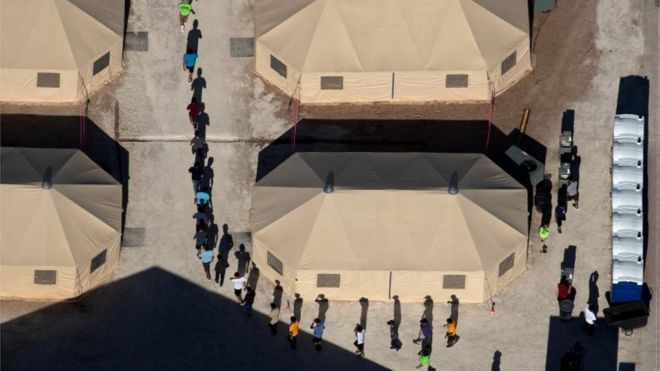 REUTERS
REUTERS
The fate of hundreds of undocumented children taken from parents remains unclear a day after President Donald Trump moved to roll back his policy.
He ordered on Wednesday that the children be held with their parents, who are jailed on criminal charges of crossing the border illegally.
But under US law, migrant children cannot be detained more than 20 days by immigration officials.
US officials have expressed mixed messages about what happens next.
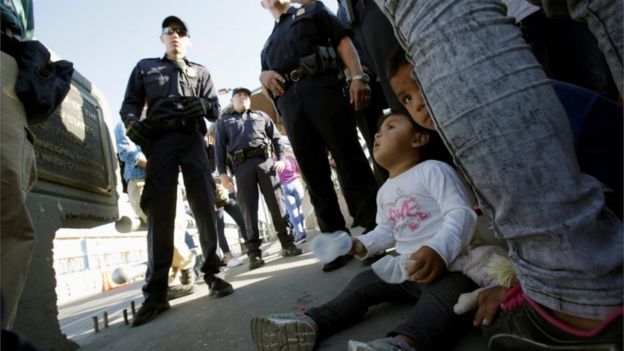 REUTERS
REUTERS
At least 2,300 children have been separated from their parents after crossing the border illegally since 5 May.
While their mothers and fathers are held in custody pending court appearances, many of their children are being sent to holding cells, converted warehouses and desert tents.
What does Trump's executive order change?
The president's executive order calls for:
- Immigrant families to be detained together while their legal cases are considered
- Expediting immigration cases involving families
- Requesting the modification of a court ruling that dictates how long immigrant children can be detained
- Agencies, including the Pentagon, to construct facilities or make existing facilities available "for the housing and care of alien families"
Missing are details on where exactly the families are to be detained and what might happen to them while new facilities are set up.
When will new policy take effect?
It is unclear how long it will take for the policy to be rolled out.
The New York Times reported that Gene Hamilton, a counsellor to Attorney General Jeff Sessions, mentioned an "implementation phase".
Mr Hamilton did not offer any other details about what border protection and human services officials would do next.
If the administration wants to detain families together indefinitely, they will need Congress or the courts to change the existing rules.
Undocumented children can be detained for no longer than 20 days by US immigration officials, under a 1997 court ruling.
What will happen to the children?
An official for a division of the US Department of Health said there would be no special effort made to reunite families already separated due to the "zero tolerance" policy.
Ken Wolfe was speaking for the Administration of Children and Families (ACF), which oversees where children are placed after they are separated from their parents.
He was later contradicted by Brian Marriott, senior communications director of the ACF, who said Mr Wolfe "misspoke".
"It is still very early and we are awaiting further guidance on the matter," Mr Marriott said in a statement. "Reunification is always the ultimate goal."
US Customs and Border Protection (CBP) said it has "taken immediate steps to implement the President's executive order" in an online statement on Thursday.
"For those children still in Border Patrol custody, we are reuniting them with parents or legal guardians returned to Border Patrol custody following prosecution."
For now, families are reportedly being given this flyer from border protection officials.
The recommended steps for parents are distilled into three actions: call ICE, call the US Office of Refugee Resettlement, and send either agency an email inquiry.
Abuse allegations surface
In recent days, abuse claims have surfaced about how migrant children have been detained at two centres.
Juveniles held in a detention centre in Virginia say they were handcuffed, beaten, left nude in concrete cells and locked in solitary confinement, the Associated Press reported.
Some have said guards strapped them to chairs with bags over their heads.
Lawyers for the Shenandoah Valley Juvenile Center have denied the allegations.
The children were placed at the Virginia centre after they were stopped while crossing the border alone and accused of belonging to gangs like MS-13.
In Houston, migrant children say they were forcibly administered drugs at the Shiloh Treatment Center.
That lawsuit was filed in April but made public on Wednesday.
Children were allegedly given psychiatric drugs while being told the pills were vitamins and warned they would not be reunited with their parents if they did not take the medication.
According to the lawsuit, one child was given two antipsychotics, an antidepressant and an antihypertensive - a combination that conflicts with professional guidelines and has been shown to result in cardiovascular problems.
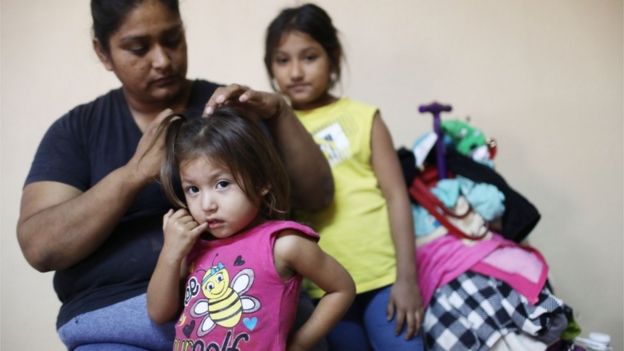 GETTY IMAGES
GETTY IMAGESWhat will happen to new arrivals?
CBP said that "family unity will be maintained for families apprehended crossing the border illegally, and they will be transferred together to US Immigration and Customs Enforcement".
But Mr Trump has made clear all adults who enter the US illegally will still be prosecuted.
With his new executive order, families with children will go through the detention process together - for a time.
If the status quo remains, then the Trump administration will see legal challenges from immigration advocates after families are held together after 20 days.
The order mandates Mr Sessions to rework this existing court ruling, but as of now, US media report that it seems unlikely the courts will overturn the 20-day limit on detaining minors.
There is only a current capacity of 3,335 beds in family detention centres run by US Immigration and Customs Enforcement, according to the federal budget figures.
Yet 420 parents and children are crossing the US-Mexico border every day, according to CBP data cited by NBC News.
That would mean the family detention centres will be full within eight days, according to the network.
US & Canada
US court backs states over web sales tax
- 21 June 2018
- Business
Suspect arrested over XXXTentacion death
- 21 June 2018
- US & Canada
Are Canadians smuggling shoes?
- 20 June 2018
- US & Canada






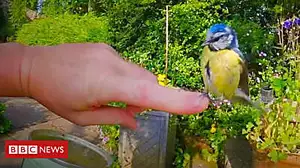




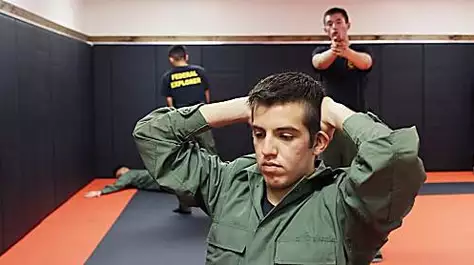
No comments:
Post a Comment